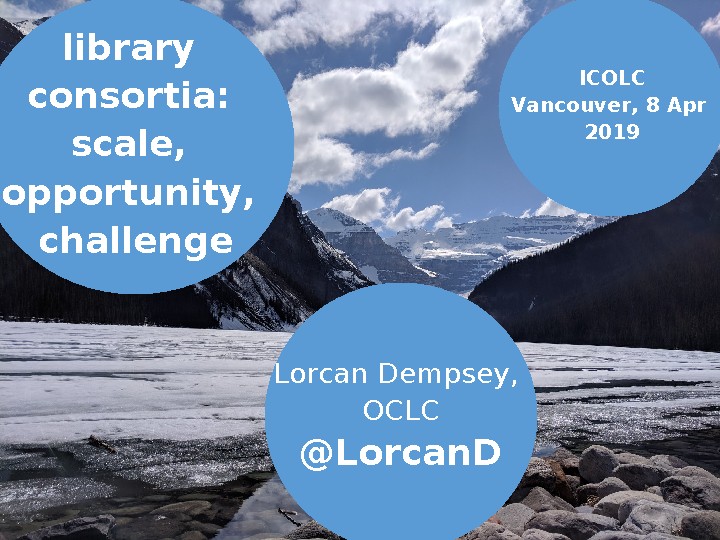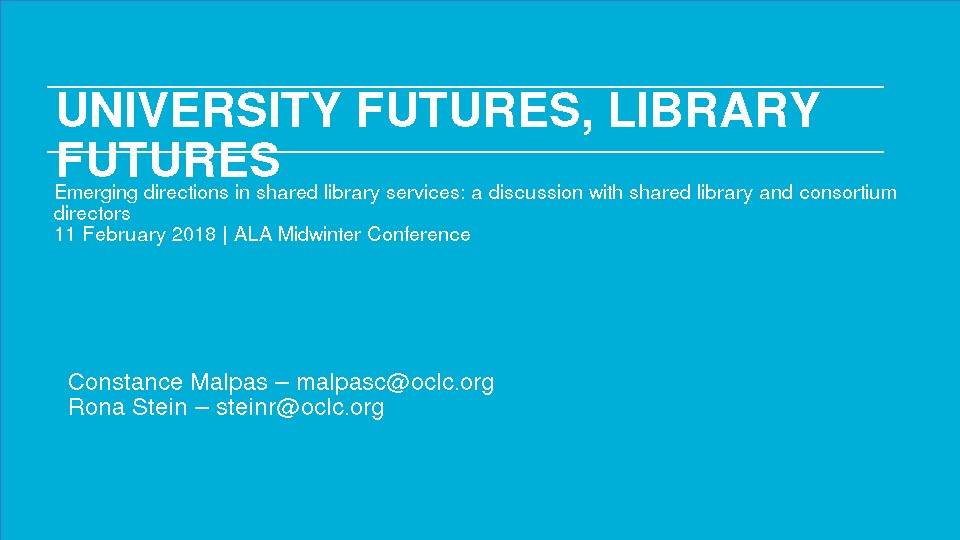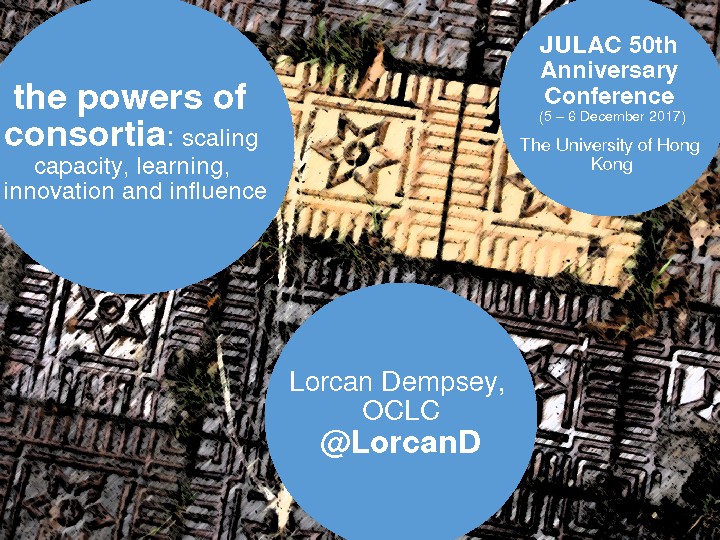Collective Collection
A Collective Collection refers to the shared resources of multiple libraries, archives, and museums. Collective Collections can be leveraged to benefit all institutional stakeholders, including researchers, scholars, students, and patrons.
OCLC Research’s Collective Collection work provides evidence and insight to support decision-making into how cultural heritage institutions organize shared collections and services. Through this work, OCLC Research is helping to create a more connected, collaborative landscape for libraries, archives, and museums, with the goal of making collections more accessible, impactful, and cost-efficient.
Presentations

Library Consortia: Scale, Opportunity, Challenge
Vancouver, BC (Canada)
Lorcan Dempsey's keynote address from ICOLC focuses on consortial achievements and opportunities in scaling and innovation.
Topics: Library Consortia

Collections, the Network, and Library Collaboration
Minneapolis, MN (USA)
Dempsey discusses the changing role of collections in research libraries and trends including inside out, facilitated, and collective collections.
Topics: Collective Collections, Collection Management, Library Consortia

University Futures, Library Futures: Emerging Directions in Shared Library Services: A Discussion with Shared Library and Consortium Directors
Denver, CO (US)
Malpas details the University Futures, Library Futures project that examined the impact of increasing differentiation of US higher education on the organization of academic libraries; and the shift from collection-centric model of excellence to engagement-oriented model supporting distinctive needs of parent institution.
Topics: Library Consortia, Library Trends

The Powers of Consortia: Scaling Capacity, Learning, Innovation and Influence
Hong Kong (China)
Dempsey discusses how working at the consortial level can scale capacity, learning, innovation, and influence, but requires balancing library and consortial roles.
Topics: Library Consortia, Sourcing and Scaling